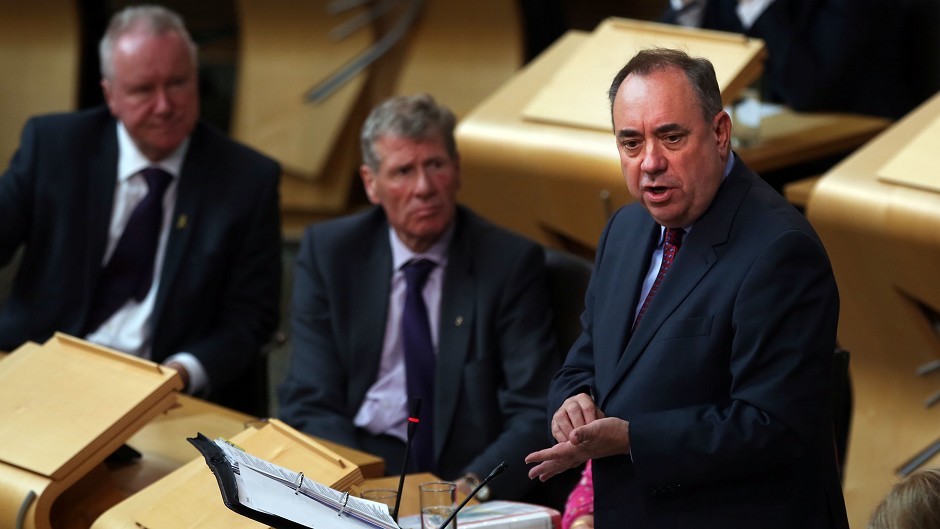A north-east council at the centre of a national row over poll tax debt collection may have clawed back just £1,000 in the whole of last year.
Figures obtained by the opposition SNP group on Aberdeenshire Council show that the total retrieved is a tiny fraction of what is owed to the local authority.
Scottish Government statistics have suggested that as much as £3.6million is due in arrears from the community charge, although council officials have put the estimate at £1.7million.
Aberdeenshire was one of several authorities which said they would use the updated electoral roll – swelled by thousands re-registering to vote in September’s independence referendum – to track down defaulters.
The community charge was introduced by the Conservatives in 1989, but was scrapped four years later after mass public protests.
First Minister Alex Salmond announced on Thursday that the SNP government intends to introduce legislation to effectively write off the debt, sparking a furious debate.
The Aberdeenshire East MSP clashed with local council leader Jim Gifford on a radio phone-in show on Friday. The Conservative councillor was unable to say how much in unpaid poll tax was being retrieved.
Mr Salmond accused Mr Gifford of putting the “frighteners” on people, given that councils legally cannot launch fresh action to recover any arrears that are more than 20 years old.
SNP group leader on the council, Hamish Vernal, said yesterday it was time “to draw a line” under the issue.
He said: “My understanding is that Aberdeenshre Council has only collected £17,000 in total of poll tax arrears over the last five years.
“Indeed, in the last financial year, the total sum recovered may have been as low as £1,000 and that with no indication of how much was spent in time and money on recovery.
“Councillor Gifford was completely unable to say how much Aberdeenshire Council actually collects each year in respect of poll tax arrears; had no knowledge of the 20 year legal limit for new poll tax debt recovery; and was unable to state how much had been written off for people who are now dead.
“To suggest that we should use the democratic expansion of the electoral role to launch a vindictive manhunt, when we could not even legally do so, is simply incompetent.”
Mr Gifford re-iterated the position that “a debt is a debt”. He added: “There is a principle here that people should pay money owed to the council.”
